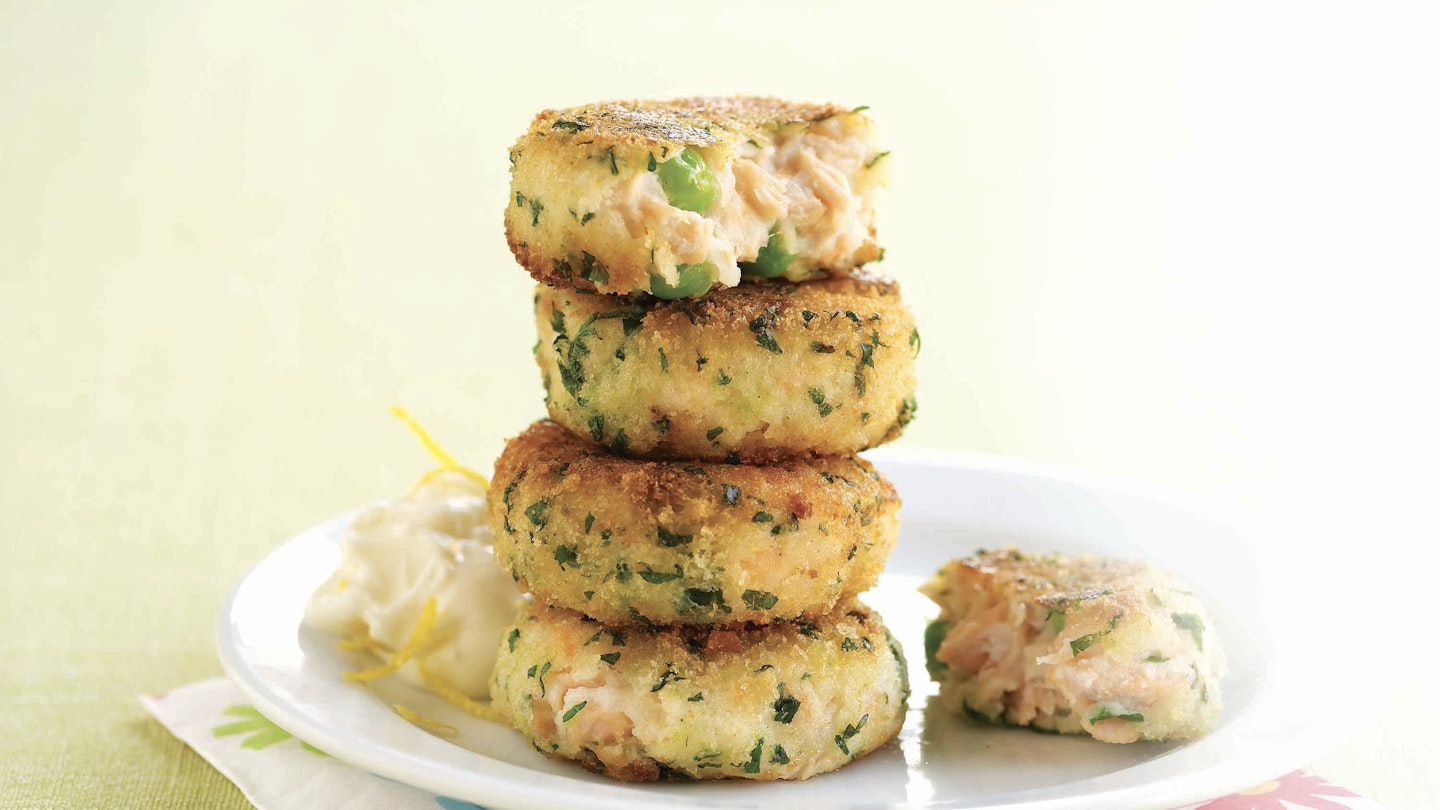Preparation Time
30 minutes
Serves
6-8
Puree
Mash some of the potato with flaked salmon. Add some breast or formula milk for a softer consistency.
Finger Food
Serve the mini fish cakes on their own without the lemon mayonnaise.
Ingredients
-
400g fresh salmon fillets
-
400g cooked potato
-
50g frozen peas, defrosted
-
150g fresh breadcrumbs
-
4tbsp freshly chopped parsley
-
2 eggs, beaten
-
Sunflower oil for frying
-
For the lemon mayonnaise:
-
250ml reduced fat mayonnaise
-
Juice and grated zest of ½ lemon
This is a tasty dish which, preparation aside, only takes a few minutes to cook. Serve the fish cakes with creamy lemon mayonnaise as a dip.
-
Place the fish in a saucepan. Add water, and bring to the boil. Cover and cook for 5 to 6 minutes. Allow to cool, then flake, removing any skin and bones.
-
Place the potato, peas and salmon in a bowl. Mix gently until combined, then season to taste.
-
Mix the breadcrumbs with the parsley and place on a plate.
-
Place a heaped teaspoon of the salmon mixture in your hands, roll into a ball, then flatten. Dip into the egg, then coat in the breadcrumb mixture.
-
Heat a little oil in a frying pan and shallow fry the fish cakes for 2 to 3 minutes each side until golden.
-
Mix together the mayonnaise with the lemon zest and juice. Transfer to a bowl. Serve the fish cakes warm or cold, ready to be dipped in the mayonnaise.
Pregnant? Salmon, an oily fish, is high in omega-3 fatty acids, which help baby’s brain development. But only have two portions of oily fish a week, as they can contain pollutants.

Recipes adapted from Complete Children’s Cookbook, £19.99, dk.com. Photography: ©DK
